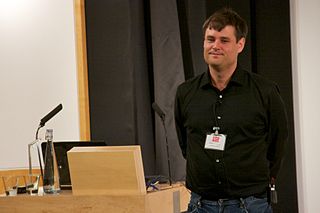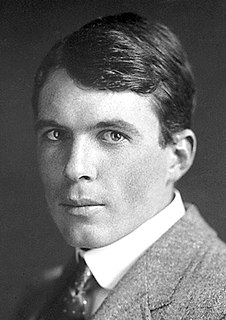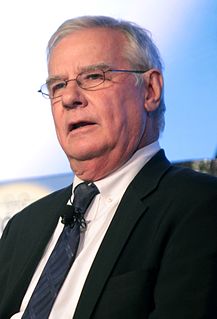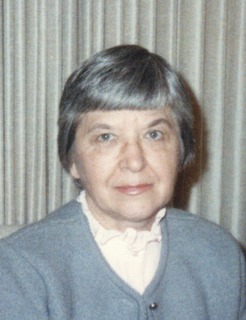A Quote by Michael Nielsen
If you go back to the 17th century, scientists generally weren't rewarded much at all for sharing discoveries, and as a result, they conducted a lot of their research very, very secretively indeed.
Related Quotes
I feel very strongly indeed that a Cambridge education for our scientists should include some contact with the humanistic side. The gift of expression is important to them as scientists; the best research is wasted when it is extremely difficult to discover what it is all about ... It is even more important when scientists are called upon to play their part in the world of affairs, as is happening to an increasing extent.
The conference also has a moral duty to examine the corruption of science that can be caused by massive amounts of money. The United States has disbursed tens of billions of dollars to climate scientists who would not have received those funds had their research shown climate change to be beneficial or even modest in its effects. Are these scientists being tempted by money? And are the very, very few climate scientists whose research is supported by industry somehow less virtuous?
Unfortunately, 19th-century scientists were just as ready to jump to the conclusion that any guess about nature was an obvious fact, as were 17th-century sectarians to jump to the conclusion that any guess about Scripture was the obvious explanation . . . . and this clumsy collision of two very impatient forms of ignorance was known as the quarrel of Science and Religion.
We scientists have fantasies of being uniquely qualified to make great discoveries. Alas, reality is cruel: most of us are replaceable. For the vast majority of scientific contributions, if scientist X hadn't achieved it that year, scientist Y would have achieved the same result or something very similar soon thereafter.
I always go back to how people behave. If you watch how people actually behave in a situation, it's very simple and honest and contained. You don't need to use as much expression, as much feeling. Some characters will boil over, and that's another thing, but a lot of times I think you can just do very, very little.
The word crap is actually another word that's very, very old. It was taken over from 17th century England by the pilgrim fathers and Americans were talking about things being crap in the 17th and 18th centuries. What Sir Thomas Crapper – complete coincidence – does is not invent the flushing toilet, as many, many people believe, but was a great promoter for it. He ran a business marketing other people's products and that's why his name was on them. When the American soldiers came over in the First World War, they all thought it was hilarious that it said 'crapper' on them.
[At DuPont,] I was very fortunate that I worked under men who were very much interested in making discoveries and inventions. They were very much interested in what they were doing, and they left me alone. And I was able to experiment on my own, and I found this very stimulating. It appealed to the creative person in me.
The scientists I looked up to at the beginning were not Latino. They were famous scientists of many years ago, like Madame Curie. Later, I realized that there were also, but a very few, Latino scientists. There were good ones, but very few, because there wasn't as much a tradition to be a scientist in our culture. But this is changing.





































